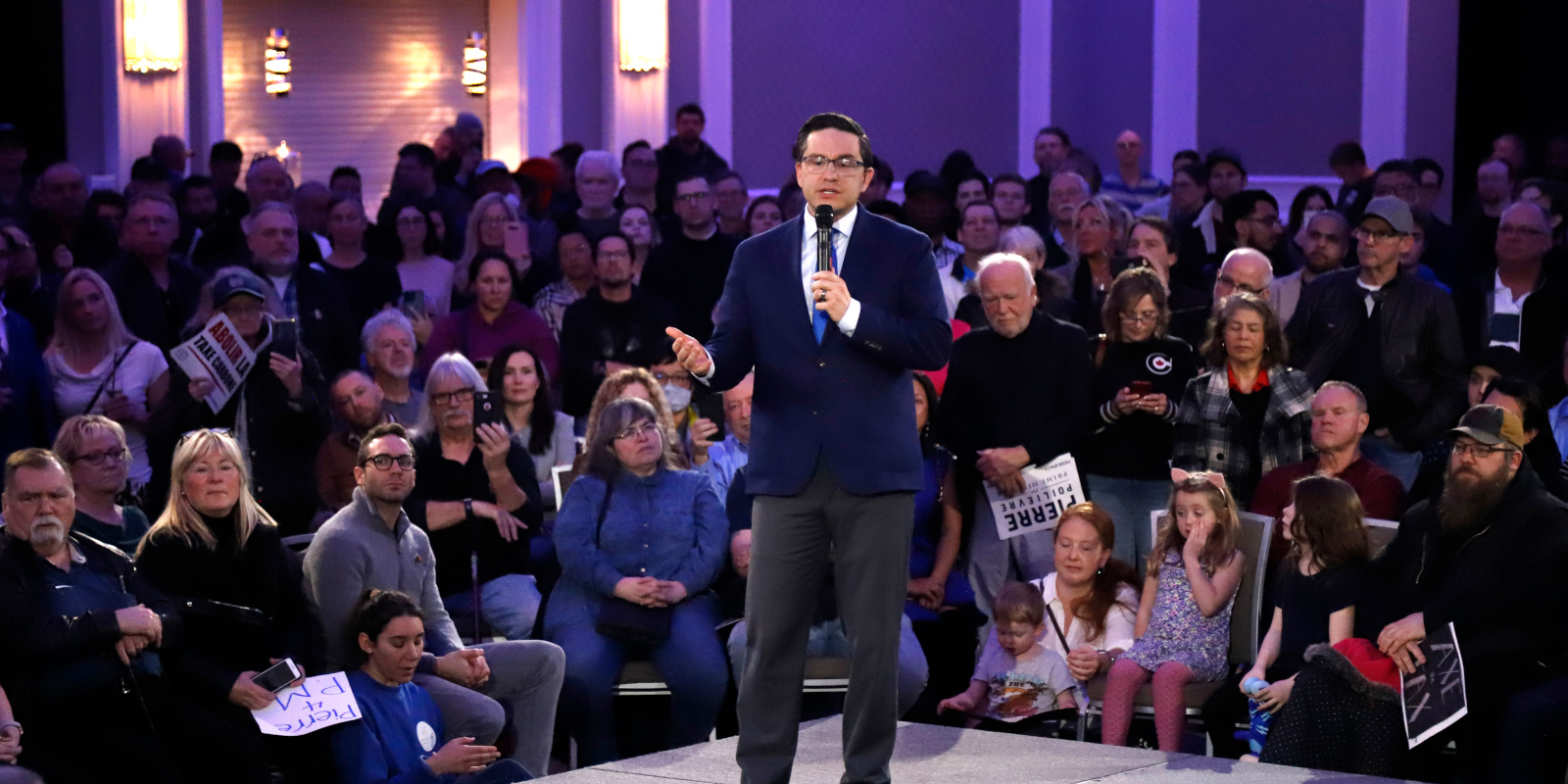How long does it take to painstakingly verify more than half a million membership forms by hand? The Conservative Party of Canada is about to find out.
The good news is the party has attracted unprecedented interest in its leadership contest this year, which it will be hoping to transform into electoral support in the next election.
The bad news? Someone has to verify all those memberships and mail out ballots in time for members to vote in August. It’s no easy task.
In today’s Conservative leadership roundup, we’ll start with the massive logistical challenge now facing the party and then examine the state of play in the race.
Good news/bad news on membership sales
After months of campaigning, featuring massive rallies and intense interest in the race, the Conservative Party was expecting a massive influx of members. But the number announced by the party on Thursday may have exceeded even the most optimistic expectations.
“The Conservative Party of Canada informed the six leadership campaigns today that they should prepare for a party membership list that is well over 600,000 eligible voters,” reads a press release issued by the party on Thursday morning.
Because the membership forms have to be individually verified by party staffers, the announcement sparked as much trepidation as enthusiasm. Could the verification process possibly be finished in time to give all members the chance to vote before the Sept. 10 leadership announcement?
Lisa Raitt, who has experience both as a leadership contender and co-chair of the committee in charge of the 2020 leadership race, said the party is six to eight weeks behind on its verification process and that it has the potential to become a “s***show.”
The nightmare scenario, Raitt explained on the Curse of Politics podcast, is that tens of thousands of valid members don’t receive their ballots and are denied a chance to vote. In that situation, it’s possible that a leadership candidate could challenge the entire process.
Ian Brodie, the current chair of the leadership committee, took to Twitter on Wednesday to calm the party’s nervous membership. Brodie said he expects the party to meet all of its deadlines on the path to declaring a new leader on Sept. 10.
Although the early estimate of more than 600,000 members has exceeded expectations, the party reminded its members this week that it has experience with this kind of thing. The race in 2020, which saw Erin O’Toole win the leadership over Peter MacKay, saw 269,469 eligible voters.
“Due to the party’s recent experience in running national leadership elections involving hundreds of thousands of members, it has been able to scale up operations to manage the increased membership numbers,” the party said.
The party said on Thursday that voters can expect their ballot packages in late July or early August, in order for them to be returned by Sept. 6.
Handicapping the field
The logistical challenge facing the party took up most of the oxygen this week, but the candidates also spent some time trying to adjust voters’ expectations.
Pierre Poilievre’s campaign says it sold 312,000 memberships over the course of the first phase of the campaign and Patrick Brown’s campaign estimates it has sold more than 150,000 memberships. Jean Charest said on Twitter that his campaign has sold tens of thousands of memberships.
Although on first appearance it looks like Poilievre has the raw numbers for a first-ballot victory, it might not be so simple.
Because the race is decided on points, rather than votes, the geographical distribution of Poilievre’s support will be important. In each riding, a vote counts for one point up to a maximum of 100 points. That means that a riding in Alberta with 1,000 votes for Poilievre counts the same as a riding in Quebec with 100 votes.
Poilievre’s campaign says it has signed up 119,000 members in Ontario, 72,000 in Alberta, and 25,000 in Quebec. How well these votes are distributed will be important because, as polling expert Eric Grenier writes, the points system ensures that Albertan votes can only count for 10 percent of the total votes in the race, while they make up 23 percent of Poilievre’s total memberships. Quebec’s 78 ridings will be worth 23 percent of the total.
Endorsement switching
After the membership sales numbers began trickling out from the campaigns, Patrick Brown endured a high-profile defection on Tuesday.
Ontario MPs Dan Muys and Kyle Seeback switched their endorsements from Brown to Pierre Poilievre, arguing that Poilievre stands the best chance of uniting the divided party. That leaves Brown with only two endorsements from the Conservative caucus: Calgary MP Michelle Rempel Garner and Ontario MP Doug Shipley.
More than half the Conservative caucus now supports Poilievre, while 16 MPs have backed Jean Charest.
Recommended for You

Laura David: Red pill, blue pill: Google has made its opening salvo in the AI-news war. What’s Canadian media’s next move?

The Notebook by Theo Argitis: Mark Carney’s first major tests

The Weekly Wrap: Trudeau left Canada in terrible fiscal shape—and now Carney’s on clean-up duty

Ben Woodfinden: Lament for an ‘elbows up’ nation



